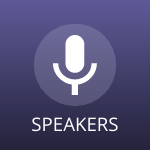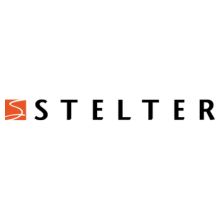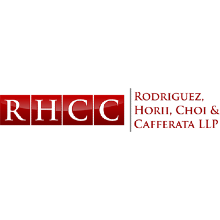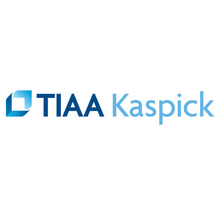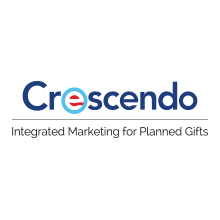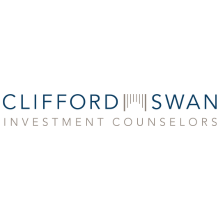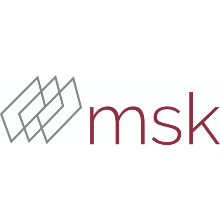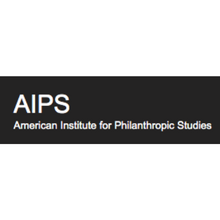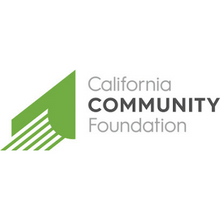- Home
- About Us
- Membership
- Events
- Conference
- Sponsors
- Resource Center
 |

CONFERENCE SCHEDULE The 2023 Conference begins with a concurrent Primer and Advanced Case Study on Tuesday afternoon, followed by multiple tracks on Wednesday and Thursday, each with three breakout sessions. There will also be three Keynote sessions. Click on the individual days below to jump to that section. Tuesday, May 16: Primer and Advanced Case Study Wednesday, May 17: Opening + Lunch Keynote, Breakouts Thursday, May 18: Breakouts and Interactive Brunch Keynote 2:00 pm - 5:00 pm: Planned Giving Primer: A Window into the World of Gift Planning Presented by: Cari Jackson Lewis, California Black Women's Collective Empowerment Institute and California Philanthropic Consulting; Nancy Baxter, LA Philharmonic A 2023 update for experienced charitable gift planners, and a back-to-basics overview for a newbie, this panel provides planners with the essential tools for crafting charitable gifts. Topics include the basics of bequest giving, life income gifts, gifts of appreciated assets, IRA rollovers as well as a look at moves management through the unique lens of planned giving. 2:00 pm - 5:00 pm: The "Gift" of a Business: The Good, the Bad, and the Ugly Presented by: Rose Chan Loui, UCLA Law; David Shevlin, Simpson Thacher & Bartlett LLP; Reynolds Cafferata, Rodriguez, Horii, Choi & Cafferata LLP You’ve just received the exciting news that a donor wants to give your nonprofit a significant gift of a business interest. Should the nonprofit accept the gift? What issues are raised? Could the gift be structured more advantageously for the donor? Join this session for an overview of issues raised for the donor and donee, followed by participant discussions of case studies presented by the panelists. 6:00 pm - 8:00 pm: Welcome Reception WEDNESDAY, May 17, 2023 7:30 am - 8:30 am: Registration & Breakfast 8:30 am - 9:00 am: Opening Remarks 9:00 am - 10:00 am: Keynote - The Neuroscience of Effective Philanthropy Presented by: Dr. Paul Zak, professor, and author of Immersion: The Science of the Extraordinary and the Source of Happiness Philanthropy is important, yet many appeals fail. Dr. Zak has spent 20 years measuring brain activity in order to understand what makes appeals successful. Drawing on 50,000 brain observations, identifying and measuring what the brain value can substantially increase the success of philanthropic appeals. A 5-step formula will be shared, along with many examples, showing attendees how to craft effective appeals that both serve organizations and make donors happy. 10:00 am - 10:15 am: Break BREAKOUTS 10:15 am - 11:30 am: Gifts of Collectible Automobiles: Hidden Gifts in Garages Presented by: Hart Roussel, Cal State Fullerton; Clint Sly, Collectors Financial Services This presentation is a part case study and part strategy. Learn to unlock tremendous value for your organization by identifying and accepting gifts of collectible automobiles. Hart and Clint will review the process undertaken by Cal State Fullerton Philanthropic Foundation to receive a bequest of 14 collectible vehicles including how they planned to receive, hold and liquidate the collection to benefit Cal State Fullerton. The presentation will cover the internal infrastructure and vendor relationships that were planned to facilitate the sale of the collection and the steps taken to limit risk to the Foundation and deliver the best value to the university. 10:15 am - 11:30 am: Gifts That Make You Call a Lawyer: Working Through Some Stressful Planned Giving Situations Presented by Karl Mill and Jennifer Hubbard, Mill Law Center Karl and Jennifer will share their experience advising charities on how to handle tricky situations relating to gifts and bequests. They will provide an overview of a few key concepts that commonly recur when gifts or bequests raise legal issues. Then, they will dive into a few case studies from real-life examples that caused the planned giving officers or development teams some stress and the legal options for solving those problems. Finally, Karl and Jennifer will save some time for conversation with the audience about their own stressful gifts situations. Throughout, they will present an approach that addresses both the charity's interest in donor relations with its legal obligations as a steward of charitable assets. 10:15 am - 11:30 am: Valuing Hand-Raisers 2.0: A Deeper Dive into Understanding Hand Raisers as part of your Metrics Presented by Zach Christensen, The Stelter Company; Brantley Boyett, GivingDocs The term “Handraiser” is on the rise in the planned giving community. Nonprofit organizations have begun to understand the value of incorporating individuals who have indicated an intention to leave a legacy bequest. In this presentation, we will expand on how tracking and calculating the value of your handraisers can add quality prospects to your pipeline, augment sales objectives, and demonstrate growth for your planned giving department. By joining our conversation, you will learn: o Specific metrics that you can apply to your handraisers to gather credible insight on planned giving prospects 11:30 am - 11:45 am: Break 11:45 am - 1:45 pm: Awards Luncheon and Keynote - Conquer the Generosity Crisis through Radical Connection Presented by: Nathan Chappell, DonorSearch Ai The number of Americans making charitable gifts has reached an all-time low and statistics indicate the percentage of people giving to charity annually could decline into the single digits within 49 years. This keynote will discuss the changing definition of generosity, shedding light on the unprecedented competition for connection facing modern nonprofit organizations. To this end, nonprofits must develop a renewed appreciation for connection and learn to leverage technology once only used by for-profit organizations. Using current data and analysis, attendees will learn the importance of measuring and prioritizing connection as well as which technologies can help them to work smarter, not harder to help overcome the competition for connection. 1:45 pm - 2:00 pm: Break BREAKOUTS 2:00 pm - 3:15 pm: Planning for Education Costs: Common Options and Charitable Strategies Presented by Ngan Raskin, JD, TIAA Kaspick The cost of higher education is a huge source of concern for families and students. With careful planning, many parents and/or generous grandparents and relatives are able to provide for a student’s education costs through one or more common options such as direct payments, 529 plans, or other savings and non-charitable trust accounts. For those interested in making a charitable gift while providing for a child’s education, certain life income gift strategies might appeal to donors. In this session, we’ll discuss the common options and charitable strategies to plan for education costs and look at the pros and cons of each approach. 2:00 pm - 3:15 pm: Case Studies and a Candid Conversation Between a Fiduciary and a Charitable Bequest Administrator Presented by Fredrick Weber, ArentFox Schiff, LLP; Andrew Fussner, American Heart Association This presentation consists of a conversation between a practicing attorney who primarily represents fiduciaries responsible for post-death administration, and a planned giving professional who administers bequests on behalf of a public charity. Through this dialogue, the presenters will use real-life examples from the administration of estates and trusts that include charitable bequests and distributions to help charitable beneficiaries better understand their rights and responsibilities when an estate or trust gift they have been cultivating for years has "matured" as a result of the donor's death. The simple idea is to help planned giving professionals better understand the information that is owed to them during the post-death administration process, advise them about the information they may be called upon to provide to the fiduciary, and set realistic expectations about the length and complexity of the process and how long it should typically take for a charity to receive its distribution following the donor's death. It is also about empowering charitable beneficiaries to question the actions and decisions of the fiduciary and to hold the fiduciary accountable in a productive and effective manner. 2:00 pm - 3:15 pm: LatinX Giving: A Wealth of Opportunities Presented by Dien Yuen, JD/LLM, CAP®, AEP®, Center for Philanthropy & Social Impact at The American College of Financial Services and Cris Lutz, The Huntington Library, Art Museum, and Botanical Gardens Emerging research shows that the Latinx community is a driving economic, cultural, and philanthropic force in the U.S. with a long-standing tradition-- and remarkable potential-- of giving. How can we engage this diverse, multi-generational community of donors more effectively to help them achieve their philanthropic goals? How do they approach philanthropy and giving, and what giving vehicles and strategies appeal to them? 3:15 pm - 3:45 pm: Break with the Exhibitors BREAKOUTS 3:45 pm - 5:00 pm: Next Level Charitable Gift Annuity Strategies! Have you considered... Presented by Christopher McGurn, PNC Institutional Asset Management The simplicity of establishing a Charitable Gift Annuity (CGA) has driven its popularity and allowed many charities to grow their planned gifts for decades. In this session, we will discuss: 3:45 pm - 5:00 pm: Planned Giving: It's a Team Sport, How to Maximize Giving Through Collaboration Presented by: Michael Andrulis and Angela Khurdajian, Providence Saint Joseph Foundation 1+1 ? 2. Sometimes it can equal 3. 3:45 pm - 5:00 pm: Get the Money: Avoiding Roadblocks with Matured Requests Presented by: Shelley Hurwitz, Esq., Holland & Knight This presentation will provide practical tips for maximizing revenue from a gift once the donor has passed. It will discuss ways to get around roadblocks put up by personal representatives, such as requiring a closing letter from the IRS, indemnity, etc. Strategies for obtaining a preliminary distribution will be discussed. 5:00 pm - 6:30 pm: Reception 7:30 am - 8:00 am: Registration and Coffee/Tea BREAKOUTS 8:00 am - 9:15 am: Stop giving Fiduciaries a License to Steal: How to Protect Your Charity when Signing Waivers of Accounting Presented by: Reynolds Cafferata, Rodriguez, Horii, Choi & Cafferata, LLP When a fiduciary distributes an estate or trust, the fiduciary often asks for a waiver of a formal accounting. The waiver usually comes with an enticing letter that says, just sign here, and you get money. Unfortunately, the waiver often is effectively a license to steal in which the charity releases the fiduciary for claims for actions that the fiduciary took but did not disclose to the charity. In many cases, ultimately, the fiduciary did not do anything nefarious, but in the instances where the fiduciary did engage in wrongful behavior, these waivers prevent the charity from being made whole when the charity learns of the wrongful conduct. This session will explain the risks of these waivers with real examples of charities that have lost funds because they signed them and explain how to limit waivers so that the charity is only approving the actions of the fiduciary that the fiduciary has disclosed to the charity. 8:00 am - 9:15 am: Matching Donor Personalities to their Perfect Gift Presented by Linda Spuck, Linda Spuck Consulting; Helen Cheng, Withers Worldwide Looking to close more gifts? Conventional wisdom trains charitable planners to recommend gift structures based on tax, income, and other financial objectives. But despite our best advice, our recommendations are often met with rejection. This workshop will focus on how personality and other factors play an important role in charitable decision-making and consider which vehicles may hold the highest appeal to various types of people including the Investor, the Deal Maker, the Worrier, and more. 8:00 am - 9:15 am: Expanding Our Conversations with Donors Presented by Allison Ohanian, University of Hawai'i Foundation Including planned giving in our gift conversations can help donors to maximize their philanthropic intent. Appreciated assets, taxable events, and planned giving vehicles work together to produce an impact that can be much greater than a current gift. In this session, you will develop a conversational understanding of planned giving to allow you to engage in these donor conversations with confidence, including how to ask the right questions and understand the variety of gifts a donor can make during their lifetime or through their estate plan. If you are new to planned giving, looking for a refresher, or are a development officer hoping to include planned giving in your gift conversations, this session aims to provide an overview of planned giving and the tools you may need to make the most of it. 9:15 am - 9:30 am Break BREAKOUTS 9:30 am - 10:45 am: $110 Million in Future Gifts in Less than Five Years: Building Donor Momentum through Estate Planning Seminars Presented by: Kimberly Jetton, Pleiades Non-Profit Advisors; Andy Ragone, Pleiades Non-Profit Advisors Discover how to engage and empower key donor advisors to help build your program and how Estate Planning Seminars are vital for creating donor 9:30 am - 10:45 am: Planned Gift Valuations? What does the future of your organization look like? Presented by Vincent Fraumeni, Cal Poly Pomona Many non-profit organizations market and promote planned gifts. They receive a host of revocable bequest notifications and a number of irrevocable bequests such as CRUTS, CRATS, and CGAs. Once notified, are organizations keeping track of what distributions are to be expected in future years? Can a PGO tell a CEO how effective the planned giving program is, or what to expect to help with planning future development? Knowing the future valuations for all types of planned gifts and potential distribution periods will add to a fundraiser's knowledge base and provide an understanding of, the "Cost to Benefit Ratio" relevance. 9:30 am - 10:45 am: A Minefield: Elder Abuse and Undue Influence in Charitable Gift Planning Presented by Marty Burbank, OC Elder Law Quite often, well-meaning planned giving officers and others find themselves and their organization at the wrong end of an elder abuse allegation. Learn what undue influence is, how to protect yourself and your organization from allegations and litigation, and still ensure your donor leaves a meaningful legacy. 10:45 am - 11:00 am: Break 11:00 am - 1:00 pm: Brunch and Interactive Keynote - Fundraising Through the Lens of Inclusion, Equity, and Diversity Presented by Yolanda F. Johnson, President, YFJ Consulting; Founder, Women of Color in Fundraising and Philanthropy (WOC); Founder, Allies in Action Membership Network Join Yolanda F. Johnson, a fundraising, philanthropy, and DEI expert, to learn more about the importance of embracing Inclusion, Equity, and Diversity in the Fundraising sector. From building a diverse donor base to effective stewardship, operations, and organizational introspection, you will leave this session with top tips and tools in mind to build a more inclusive fundraising operation. 1:00 pm - 1:10 pm: Closing Remarks Additional Details Cancellation Policy: A refund of full registration is permitted by submitting a written request to [email protected] no later than April 17, 2023. After April 17, 2023, a $50 administrative fee applies. LACGP regrets that refunds will not be given for no-shows or cancellations after May 15, 2023. LACGP reserves the right to change speakers and/or cancel an event due to unforeseen circumstances without penalty. The total amount of any liability of LACGP will be limited to a refund of the attendee’s registration fee. Consent Clause Photo Release Registration and attendance at, or participation in, LACGP meetings and other activities constitute an agreement by the registrant to the use and distribution (both now and in the future) of the registrant or attendee’s image or voice in photographs, videos, electronic reproductions, and recordings of such events and activities by LACGP and other third parties (for example, sponsors). Your registration may include technology that monitors your activities throughout the meeting, such as session attendance. Email/Mail Release Mobile App Policy Continuing Education The Los Angeles Council of Charitable Gift Planners is approved as a continuing education provider #3889 of MCLE credit by the State Bar of California and designates this activity for a maximum of 13.5 hours of credit. Full participation in the WRPGC is applicable for 13.5 points in Category 1.B -Education of the CFRE International application for initial certification and/or recertification. Continuing Professional Education (CPE) credits for CPAs through the California Board of Accountancy are self-reported and it is the obligation of each licensee to select a course of study consistent with the CBA requirements. Certified Specialist in Planned Giving (CSPG) continuing education credits for Planned Giving are self-reported and the appropriate attendance certificate will be provided after the event.
|



